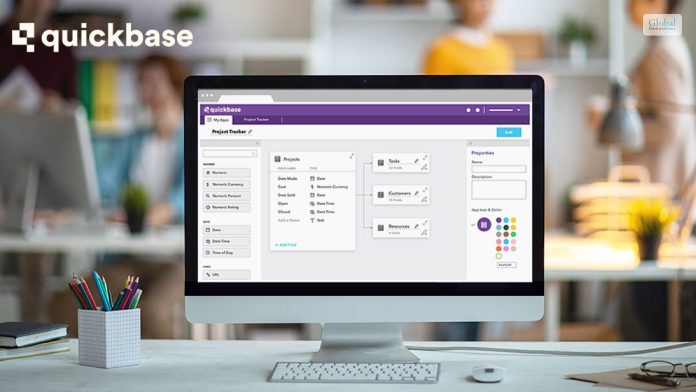Beyond The Desk: The Evolution Of Field Service Management In Modern Business

Field service management entails planning, allocating, monitoring, and controlling field service technicians or other mobile personnel who serve consumers with on-site services. However, these services might be challenging to manage consistently, effectively, and seamlessly.
Field-based service-oriented enterprises are in sectors including telecommunications, infrastructure, heating and ventilation, medical care, construction, and transportation, where efficient management of a mobile team is crucial.
In addition to managing client service level agreements, dispatching professionals for repairs and installations, and other tasks, managers must keep tabs on on-site service calls. However, they cannot maximize their personnel productivity through traditional field service management.
Today’s customers seek services that are quick and easy. As a result, organizations involved in such a competitive market require sophisticated FSM software to manage their machinery, personnel, and other resources efficiently. This article describes how field service has evolved to help manage a business efficiently.
Evolution of Field Service Management
Field service management entails controlling services at client sites or other remote locations, from setting up equipment to examination and repair.
Historically, businesses schedule and carry out many tasks manually, which took time and allowed for human mistakes. Managing factors impeding development, such as insufficient information, sales personnel falling behind schedule, and communication problems, was more challenging.
Software for field service management emerged with the advancement of mobile technologies. It’s a field that is quickly developing mainly because of technological innovations improving operations and making customers happy. Tech professionals can now work more productively from anywhere and keep connected in real-time thanks to mobile phones and apps.
Businesses now have the resources to overcome complex scheduling constraints and guarantee that clients receive dependable, high-quality service using cloud-based field service management solutions.
The long-promised goal of predictive analytics is finally becoming a reality because of the combination of Internet of Things (IoT) detectors, artificial intelligence (AI), and sophisticated statistical tools.
This evolution in field service management has given room to perform most field operations better. Below are ways field management evolution has enhanced modern business.
Transparency and Real-Time Information
Processes become more efficient and transparent with the help of field service management software. You can track, gather, examine, and share information in a centralized interface, making it more straightforward to manage tasks and make decisions using concrete data.
This evolution removes the typical communication channel where the customer phones the contact center, the contact center employee contacts the headquarters office, and then the administrative staff reaches out to the planner or technician again.
Additionally, the back-office personnel are no longer required to wait for the field staff to return to the office carrying a stack of paperwork toward the closing hour of a long workday to process data.
Tasks Scheduling
By setting up a timetable and delegating jobs to experts near the clients, businesses may use FSM software to prevent overlaps. The schedule should include specifics about the task at hand, locations, and urgency.
By immediately locating replacements and changing the agents’ schedules accordingly, the program also aids in predicting and preventing problems like unexpected cancellations.
Additionally, managers may monitor progress in real time, spot any obstacles, and make modifications as necessary to ensure that field service operations run smoothly. You may relate FSM software to a personal assistant who always thinks ahead, analyzes your needs, and ascertains you complete the task without a hitch.
Resource Allocation Maximization
Managers may find it tricky to keep track of team locations, equipment inventories, and progress on projects with a lack of FSM software.
A tailored field service management tool helps distribute resources like personnel, cars, and equipment as required. When scheduling and allocating tasks, the software utilizes variables including technician accessibility, expertise, location, and availability of supplies.
Businesses may decrease travel time, save on fuel expenses, and guarantee that the proper technician with the relevant abilities is allocated to each project by maximizing resource allocation. By doing so, it results in cost savings and enhanced productivity.
Cashless Payments
In the past, managing client payments for field service was challenging. Employees would be more vulnerable to crime or danger if clients paid in cash because they would have to travel with large sums.
Other solutions were inadequate; for instance, not every client has a checkbook available on a site visit, and charging clients after the visit frequently resulted in an extended wait for payment.
These issues are already gradually disappearing for many organizations because of electronic billing and internet-based cashless payments. You can generate invoices automatically from the company’s bookkeeping or enterprise resource planning (ERP) programs.
Improved Technician Empowerment
Field service management significantly simplifies and improves the quality of life for field service personnel. Modern field service management solutions can provide technicians with real-time access to crucial data, enabling them to perform their duties competently and with consideration for customers’ needs anywhere and at any time. This is particularly valuable in industries like electric utilities, where quick access to asset information can improve response times during outages.
These solutions streamline work processes by consolidating technicians’ work calendars and employment information into a single source. For instance, in water utilities, technicians can easily access maintenance histories and equipment specifications on-site. Similarly, gas utility workers benefit from mobile access to safety protocols and real-time collaboration tools. So, by freeing up technicians’ time from administrative tasks, field service management tools allow them to concentrate on their primary responsibility: providing the highest level of client service while efficiently managing field assets.
Better Customer Service
Nowadays, a service or product’s pricing is less significant than the customer experience. You can resolve more issues on the first on-site visit thanks to field service management’s improved data availability and access and more efficient processes.
Customers like that technicians have historical knowledge. For instance, they know a representative from the same firm dropped by the previous week because of field service management.
Clients and office workers also get a Digital Work Order that outlines the mechanic’s work. As a result, clients are happy and feel like they are treated seriously and effectively addressed.
Maximizing Field Service Management Evolution
Technical development, human inventiveness, and the enduring desire to satisfy and surpass customer expectations have formed field service management.
Businesses are constantly looking for an equilibrium between productivity and the human touch, from the modest, paper-driven operations of the 1990s to the hyper-connected, live systems of the 2020s.
The ideal way to oversee your field service and maintain control over the business-related activities beyond your office is through field service management. When applied adequately, the strategy ensures time and money savings, improved customer service, and increased comfort and job fulfillment for the field personnel.
Read Also:













